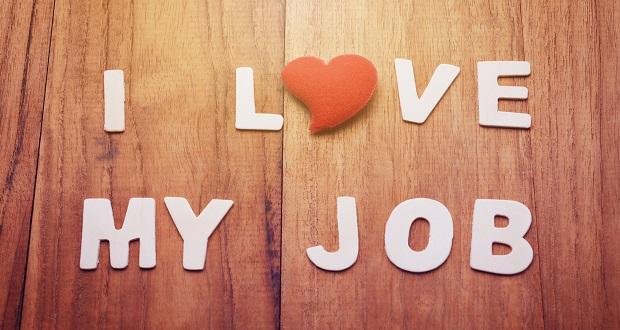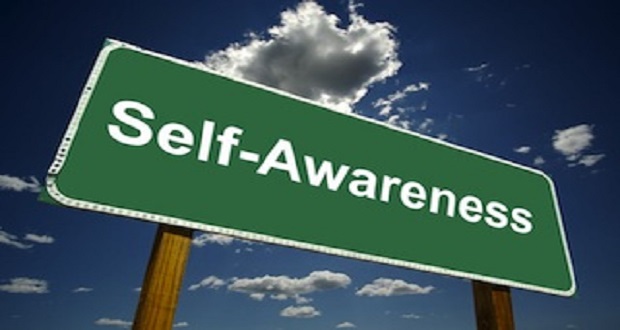When I first moved to Texas — more specifically Austin, Texas — I distinctly remember all of the typical culture shocks: the scorching hot triple-digit weather, breakfast tacos, Topo Chico, Cholula, and the almost complete absence of snow and ice – almost.
But what surprised me even more was a shift in communication and socialization style that I didn’t anticipate – the expectation of being “nicer.”
Initially, I chalked it up to the change in geographical location. And while location and region absolutely can and do impact language, communication, and culture, this was something else. I experienced how being a Black woman in predominately white spaces complicates not-so-subtle differences in expected prosocial norms.
I was often reminded how “rude” and “direct” I was coming across to so many folks I interacted with – particularly white folks, and especially white women, while at work. In these spaces, I’ve received feedback – ironically both directly and indirectly – that I come off as intimidating, that I should consider adjusting my tone, and that it would help if I were “nicer.” In my experiences, I repeatedly found that people were generally friendly and nice, at least on the front end, but so routinely unkind. The same people that smiled in my face and made a great show of welcoming me into the office were some of the same people who deliberately left me off of emails and excluded me from important meetings, smiled and apologized when I brought it up, and then conveniently “forgot” again the next time.
When I would ask to be included on projects that I knew would advance my career, I was instead asked to work on the Halloween committee or volunteer events since I was “so good with people” and so “energetic.”
When I inquired about professional development opportunities to further develop my skills linked to my actual job, I was met with excitement and enthusiasm, but would never actually receive a response, or was told that “it wasn’t in the budget” – only to witness that same manager instead send non-Black teammates who had less tenure, less experience, and even less interest than I.
When I would ask clarifying questions on expectations or seek actionable insight on my progress, I would be met with fuzzy responses that didn’t directly address my inquiry. I was provided with impossible to hit, undefined metrics only to be caught off guard by the feedback in my annual reviews that would include concerns about my performance, my inability to meet goals, and/or that I was either not a “team player” or “leadership material.” Additionally, I would be given suggestions to work on my “tone” and “professional presence.” Colleagues, managers, and teammates who were all typically so friendly to my face began to change when I would push back on boundaries surrounding how I expected to be treated. My lack of desire to answer invasive and often personal questions about my hair or body, or my pointing out of discrepancies in how I was being treated, made me no longer seen as “nice” – I had disrupted their sensibilities.
But here is the thing about “nice” – niceness only works as long as things, feelings, and experiences continue to be nice. As soon as those circumstances change, the niceness tends to evaporate. Furthermore, what is considered to be “pleasant; agreeable; and satisfactory”, as niceness is defined, not only changes from person to person, but is also heavily influenced by the dominant culture – as many of our prosocial behaviors are. In a white supremacist/dominated society, what is considered “nice” is controlled and influenced by the hegemony. Niceness is ephemeral. Niceness is often performative, niceness is subjective, and the expectations of niceness have been weaponized to silence the voices of Black women and other marginalized people in our country when we fail to make members of the dominant group feel comfortable or refuse to remain agreeable to circumstances that harm us.
Niceness is often performative, and the expectations of niceness are weaponized to silence voices of Black women and marginalized people when we fail to make members of the dominant group feel comfortable. Share on XGrowing up, I learned from my family and village that speaking up and advocating for myself and others was not only kind but was actually a necessity for my survival and safety. Telling the truth, keeping it 100, and real talk were, and still are, signs of care and concern and investment. Black folks can’t afford to have to read between the lines or beat around the bush in their day-to-day when merely being Black in this country means you are always in a state of emergency. We simply don’t have the luxury of being deeply invested in social sensibilities that do nothing but harm us. How could I possibly be in harmony, build trust, or be in community with anyone – particularly while at work – who is primarily concerned with how I make them feel, expects me to perform niceness for their own comfort, and measures my social aptitude on a system that by design excludes me?
Black folks can't afford to have to read between the lines or beat around the bush when merely being Black in this country means you are always in a state of emergency. Share on XUniversity of Chicago professor of sociology Thomas Kochman coined a model called “Peace over Truth/Truth over Peace.” This model was designed to help illustrate the differences between how white and Black Americans build trust in communication in different ways. According to Kochman’s research, Black Americans tend to seek open and direct interactions in establishing connection and understanding, even if there is disagreement – “truth over peace.” Conversely, white Americans generally look to establish connection and understanding using a more indirect manner of communication to establish peace upfront, often agreeing to disagree in order to preserve harmony – “peace over truth.” What happened when I moved, and what has ultimately happened in most majority-white spaces I’ve existed in, was that I was expected to always abide by the “peace over truth” model with little to no understanding or acknowledgment of how culturally that wasn’t an option for me.
What happens in most majority-white spaces I've existed in is that I am expected to always abide by the 'peace over truth' model with little to no understanding or acknowledgment of how culturally that wasn't an option for me. Share on XAs a Black woman, I have always remembered those whom I have worked with and met who were genuinely kind to me – even when that kindness was difficult or unpleasant and did not have any conceivable benefit for them. Kindness requires, demands even, that we model courage and vulnerability. To some, kindness may seem relatively similar to, or even interchangeable with, “niceness.” But the key difference between niceness and kindness is that kindness requires action – you have to do good even if it means nothing is in it for you, or necessitates going against prosocial normative expectations. And often doing the good thing, the right thing, requires us to not only genuinely reexamine our own privileges, but also may require us to do something unpleasant, disagreeable, or unsatisfactory. We run the risk of not being seen as nice or likable, but we know we did the right thing. Another critical difference to consider is that kindness pushes us to move past the golden rule of treating people how you want to be treated to the platinum rule of treating people how they wish to be treated.
The key difference between niceness and kindness is that kindness requires action – you have to do good even if it means nothing is in it for you, or necessitates going against prosocial normative expectations. Share on XThe best experiences I have had with white coworkers, colleagues, and managers have been when they worked hard to get to know me, gave me the space and support to be myself, respected my boundaries, and continued to do the work of understanding their own privileges without burdening me with the emotional labor or expectation to educate them. But also, and I would argue in some cases most importantly, they used their social capital to support me and create airspace for me to soar – whether that meant speaking my name in rooms that I was not included in; pushing back when someone remarked on innocuous things such as my tone, dress, or attitude; forwarding me meeting invites that I was left off of; or introducing me to senior leadership and industry folks. Those experiences were the kindest and were followed up in action.That shift from nice to kind – and the self-awareness to understand the distinction – was the critical difference.
The best experiences I've had w/ white colleagues have been when they got to know me, gave me support to be myself, respected my boundaries, and continued understanding their privileges without burdening me. Share on XBut how does one shift to the more authentic and action-based kindness and divest from the subjective and sometimes weaponized niceness?
- Know Thyself: We all learned prosocial behaviors from somewhere. How did you learn that being nice was the expectation? Where did that come from? How might that expectation change or differ given your lived experiences, in comparison to someone who does not share your identity?
- Examine: Ask yourself: why is it important to be seen as nice? Why do I value that same expectation from others?
- Speak Up: In what ways have you silenced your own voice for the sake of “keeping the peace?” Take some time to revisit and reexamine how that made you feel and how it may have had a long-term unintended effect on you.
- Inclusion: Think of different ways you can make room for cultural differences that you may experience while at work as well as in day-to-day life. Ask yourself: what are some potential hurdles for me to overcome? How might my view on what is seen as “normal” or “standard” behavior include my own biases and influence how I interact with others?
- Boundaries: Revisit some of the ways you may have responded to someone when they gave you a boundary. Were your feelings hurt? If you took it personally, why might that have been? What are some ways you establish and uphold boundaries for your own needs? How might doing so for yourself help you with supporting others?
- Action: What are some ways you can be more intentional about rethinking the pressures of being “nice?” How might a shift to action-based kindness change how you interact with others as well as yourself?




















